TELEPHONES ANSWERED 24 HOURS A DAY
Recent Blog Posts
Understanding Federal Money Laundering Charges in Illinois
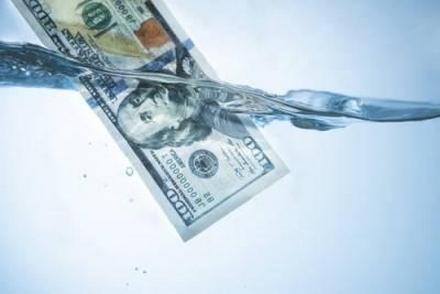 Not all crimes that take place are crimes of violence. Some crimes can be just as destructive without directly causing any physical harm to people. Many of these crimes are related to finance or technology and are broadly referred to as white collar crimes. Now, more than ever, white collar crimes are easier to commit as technology advances further, and in the United States, a variety of task forces and federal agencies investigate and prosecute them. One type of white collar crime that is commonly associated with both low-level and high-profile crime is called money laundering.
Not all crimes that take place are crimes of violence. Some crimes can be just as destructive without directly causing any physical harm to people. Many of these crimes are related to finance or technology and are broadly referred to as white collar crimes. Now, more than ever, white collar crimes are easier to commit as technology advances further, and in the United States, a variety of task forces and federal agencies investigate and prosecute them. One type of white collar crime that is commonly associated with both low-level and high-profile crime is called money laundering.
What is Money Laundering?
In general, money laundering occurs when large amounts of money that are obtained through criminal activity are handled in a way that makes the money look as if it came from a legal source. In other words, money laundering takes “dirty” money and makes it “clean.” Many times, money laundering is a result of other criminal activity, such as drug trafficking or manufacturing. Most of these illegal businesses operate with cash, but keeping thousands and sometimes millions of dollars on hand is inefficient. Money laundering allows criminals to deposit that money into a legitimate financial institution without it looking suspicious.
What Are the Minimum Sentencing Guidelines for Federal Drug Charges?
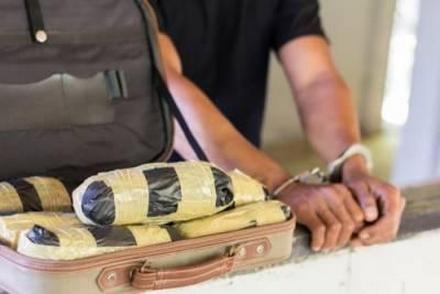 The United States has a long and complicated history with drugs. In the 1800s, many drugs that are illegal today were available to most individuals who wanted them. Cocaine, heroin, opium, and cannabis were widely sold and were sometimes even marketed as health remedies. By the late 1800s, several states began to pass laws banning the sale and use of cocaine and opium, and by the early 1900s, the first federal law relating to drug use and possession was passed, highly regulating the legal narcotic industry and creating law enforcement that today is known as the Drug Enforcement Agency (DEA). In today’s world, the DEA is best known for enforcing federal drug laws and prosecuting those who sell or traffic drugs across state lines, along with other federal drug offenses.
The United States has a long and complicated history with drugs. In the 1800s, many drugs that are illegal today were available to most individuals who wanted them. Cocaine, heroin, opium, and cannabis were widely sold and were sometimes even marketed as health remedies. By the late 1800s, several states began to pass laws banning the sale and use of cocaine and opium, and by the early 1900s, the first federal law relating to drug use and possession was passed, highly regulating the legal narcotic industry and creating law enforcement that today is known as the Drug Enforcement Agency (DEA). In today’s world, the DEA is best known for enforcing federal drug laws and prosecuting those who sell or traffic drugs across state lines, along with other federal drug offenses.
Sentencing Guidelines for Federal Drug Crimes
Many federal drug crimes have minimum sentences that are required to be imposed if the person is convicted. These guidelines were put into place during the 1980s when the Reagan administration declared the “War on Drugs,” but many studies have shown that these minimum sentences do not actually reduce the amount of drug crime or the rate of recidivism of those who have been convicted. Nevertheless, these minimum sentences still exist today. If you are convicted of federal drug manufacturing or trafficking, you could face the following consequences:
What Acts Constitute Mortgage Fraud in the United States?
 Homebuyers in the United States have had a difficult time navigating the housing market lately, due to financial constraints related to the COVID-19 pandemic and increased competition driven by low interest rates. While homeownership is a dream for many people, it can be difficult to achieve, especially at a time like now. Some people may be tempted to obtain a mortgage through underhanded means, or prey on those who are struggling, but it is important to know that mortgage fraud is a serious crime that is typically prosecuted at the federal level and that can carry significant penalties.
Homebuyers in the United States have had a difficult time navigating the housing market lately, due to financial constraints related to the COVID-19 pandemic and increased competition driven by low interest rates. While homeownership is a dream for many people, it can be difficult to achieve, especially at a time like now. Some people may be tempted to obtain a mortgage through underhanded means, or prey on those who are struggling, but it is important to know that mortgage fraud is a serious crime that is typically prosecuted at the federal level and that can carry significant penalties.
Understanding Types of Mortgage Fraud
According to the Federal Bureau of Investigation (FBI), mortgage fraud is a type of financial institution fraud that involves some sort of misstatement, omission, or misrepresentation on a mortgage loan application or agreement for the purposes of misleading a bank or lender. Mortgage fraud can include actions taken by borrowers to obtain a place of residence or by lenders to make money. Common types of mortgage fraud include:
What You Should Know About Firearms and Weapons Charges in Illinois
 In the United States, the right to own and carry a firearm is protected under the Second Amendment of the Constitution. However, there are certain acts and situations that may cause you to lose your right to own or carry a firearm. In addition, you could face criminal charges if you use a weapon to threaten someone or in the commission of another crime. A qualified criminal defense attorney can help you learn what you need to know about guns and weapons charges in the state of Illinois.
In the United States, the right to own and carry a firearm is protected under the Second Amendment of the Constitution. However, there are certain acts and situations that may cause you to lose your right to own or carry a firearm. In addition, you could face criminal charges if you use a weapon to threaten someone or in the commission of another crime. A qualified criminal defense attorney can help you learn what you need to know about guns and weapons charges in the state of Illinois.
Not All Weapons Are Guns
While most weapons charges result from the illegal use or possession of a gun, not all are connected to a firearm. In fact, almost any object can become a weapon, depending on the circumstances. Examples could include everything from knives, swords, and switchblades to stun guns and brass knuckles. Use of these or any other dangerous weapons can lead to a criminal weapons charge under Illinois law.
Should I Testify in My Criminal Trial?
 When you have been charged with a crime and your case is set for trial, you and your attorney will need to decide if you are going to testify on your own behalf. This decision will need to take into account a variety of ethical and strategic considerations, including the nature and severity of the crimes for which you have been charged. Deciding to testify in a murder trial, for example, is much different from deciding to testify in a trial for theft or burglary. As you and your lawyer approach this decision, it is critical to understand how the choice can affect your case.
When you have been charged with a crime and your case is set for trial, you and your attorney will need to decide if you are going to testify on your own behalf. This decision will need to take into account a variety of ethical and strategic considerations, including the nature and severity of the crimes for which you have been charged. Deciding to testify in a murder trial, for example, is much different from deciding to testify in a trial for theft or burglary. As you and your lawyer approach this decision, it is critical to understand how the choice can affect your case.
Constitutional Rights and Protections for Criminal Defendants
As a criminal defendant, you have the right to due process of law as promised by the Fourteenth Amendment to the U.S. Constitution. You also have the right to face your accusers under the Sixth Amendment. Taken together, these rights have been interpreted in case law as giving you the right to testify in any criminal proceeding against you. Nobody involved in the case can keep you from testifying if you wish to do so, including the judge, the prosecutor, or even your own attorney.
Illinois Set to End Cash Bail by 2023
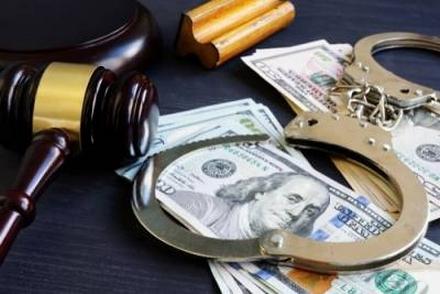 Last month, Illinois lawmakers passed legislation that would eliminate the use of cash bail in criminal courts throughout the state. The measure, which is now awaiting the expected signature of Governor J.B. Pritzker, is being touted by supporters as a strong step toward creating a more equitable justice system for Illinois residents of all races and socioeconomic backgrounds.
Last month, Illinois lawmakers passed legislation that would eliminate the use of cash bail in criminal courts throughout the state. The measure, which is now awaiting the expected signature of Governor J.B. Pritzker, is being touted by supporters as a strong step toward creating a more equitable justice system for Illinois residents of all races and socioeconomic backgrounds.
Understanding How Bail Works in Illinois
When a person is arrested and charged with a crime, he or she is generally required to make an appearance in front of a judge in a preliminary hearing. This usually happens within 48 hours of the arrest. At this hearing, the judge will consider the details of the alleged crime and determine if the probable cause presented by law enforcement was sufficient to justify the arrest. If the offense in question is a misdemeanor, the suspect is likely to be given a date for the next required court appearance and released on his or her own recognizance. If the offense is a felony, the next appearance will be scheduled, and the judge must then determine the bond conditions on which the suspect may be released.
Avoiding Criminal Charges After a Routine Traffic Stop
 Routine traffic stops for minor violations, like driving with a faulty tail light, failing to properly signal a turn, or exceeding the posted speed limit, are common occurrences, and in most cases they result in a ticket and fine, or even just a warning. However, sometimes what starts as a routine traffic stop can result in much more serious criminal charges, including for driving under the influence (DUI) or illegal possession of drugs, weapons, or stolen property. If you are stopped by a law enforcement officer, it is important that you understand your rights.
Routine traffic stops for minor violations, like driving with a faulty tail light, failing to properly signal a turn, or exceeding the posted speed limit, are common occurrences, and in most cases they result in a ticket and fine, or even just a warning. However, sometimes what starts as a routine traffic stop can result in much more serious criminal charges, including for driving under the influence (DUI) or illegal possession of drugs, weapons, or stolen property. If you are stopped by a law enforcement officer, it is important that you understand your rights.
Common Misconceptions About Traffic Stops
Many people believe that they are required to answer an officer’s every question and consent to their every request during a traffic stop. A person’s natural instinct may be to cooperate, and they may even hope that the officer will let them off with just a warning because they were so polite. The reality, however, is that anything you say to the police officer could become evidence used against you later in court. In addition, your statements could give the officer probable cause to arrest you for a more serious offense, or to search your vehicle.
Executive Order Will Phase Out DOJ’s Use of Private Prisons
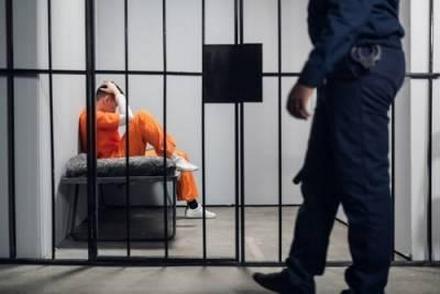 In the first few weeks of his administration, President Joe Biden has taken a number of steps toward keeping promises that he made on the campaign trail. To date, President Biden has signed more than two dozen executive orders, already approaching Franklin Roosevelt’s record of 30 executive orders in the first month of his administration. The president’s efforts of late have been directed toward social and racial justice concerns, including a noteworthy executive order that will phase out the use of private federal prisons by the Department of Justice.
In the first few weeks of his administration, President Joe Biden has taken a number of steps toward keeping promises that he made on the campaign trail. To date, President Biden has signed more than two dozen executive orders, already approaching Franklin Roosevelt’s record of 30 executive orders in the first month of his administration. The president’s efforts of late have been directed toward social and racial justice concerns, including a noteworthy executive order that will phase out the use of private federal prisons by the Department of Justice.
Changing the “Whole Approach”
Last Tuesday, President Biden issued an executive order that directs the Attorney General and the Department of Justice to end their association with privately run, for-profit prisons. As part of the order’s directives, existing contracts with private prisons will continue to be honored, but the Attorney General has been instructed not to renew such contracts when they expire.
Understanding the Federal Offense of Perjury

Most people have at least heard of perjury, and you probably realize that being accused of perjury is a serious matter. You might know that perjury means lying under oath, but did you know that it is a federal crime? There are a number of federal statutes that address and criminalize perjury and related false statements, but two, in particular, are used most often to prosecute perjury. Section 1621 of Title 18 of the United States Code is commonly used to prosecute perjury before administrative, legislative, and judicial bodies, while Section 1623 of Title 18 addresses false statements made before grand juries and federal courts.
While there are differences between these two statutes and their applicability, the overall definition of perjury remains largely the same. It may seem like a simple definition, but prosecutors must prove several distinct elements to obtain a conviction on perjury charges.
What You Should Know About Presidential Pardons
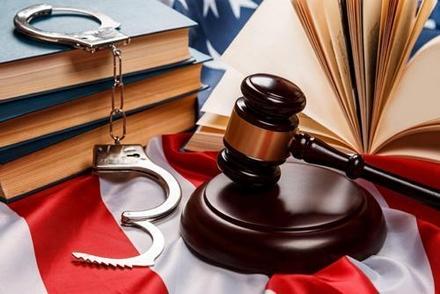 In the last few days of his presidency, President Donald Trump issued more than 140 pardons and commutations to individuals throughout the country. The list of those who received executive clemency includes high-profile musical artists, criminal justice activists, and people who were serving long prison sentences for relatively low-level federal offenses. But, where does the president get the authority to issue presidential pardons, and are there limits on who can receive executive clemency?
In the last few days of his presidency, President Donald Trump issued more than 140 pardons and commutations to individuals throughout the country. The list of those who received executive clemency includes high-profile musical artists, criminal justice activists, and people who were serving long prison sentences for relatively low-level federal offenses. But, where does the president get the authority to issue presidential pardons, and are there limits on who can receive executive clemency?
Pardons in the U.S. Constitution
Article II of the U.S. Constitution addresses the executive branch of the United States government, namely, the office of President of the United States of America. In Section 2 of Article II, the Constitution states that the president “shall have Power to Grant Reprieves and Pardons for Offences [sic] against the United States, except in Cases of Impeachment.” In short, this means the president has the authority to grant clemency to any individual who has been convicted of, or who is or might be under investigation for, a federal crime unless the individual in question is facing impeachment from public office.




